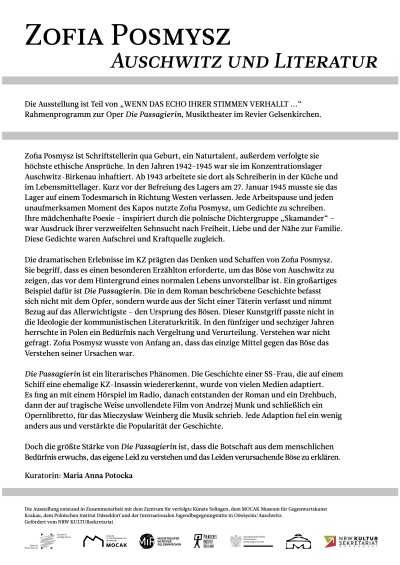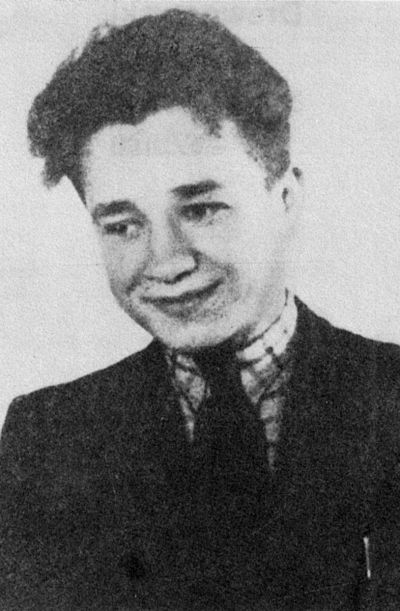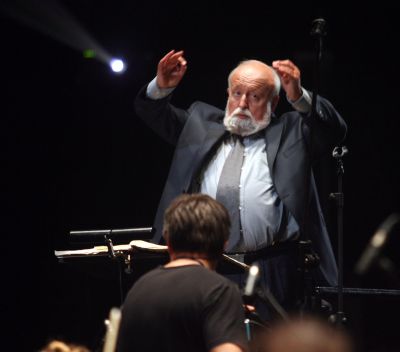Opera as a place of memory. “The Passenger” by Mieczysław Weinberg. 2017 in Gelsenkirchen

The tragic destiny of the prisoners is described in individual scenes, as in a movie or a documentary film. It is remarkable that, despite the huge volume of the instrumentation, the emotional music does not prevent us from understanding every word of the libretto. The libretto and translations into German are projected as surtitles above the stage. Although the music constantly stays faithful to the driving force of the production, thanks to the masterly skill of the conductor it remains subservient to the sung text and the crushing background.
One of the most unforgettable moments occurs when a Russian prisoner called Katja, sings a Russian folk song with no orchestral accompaniment. The incredible silence in the audience seemed to be the only acceptable reaction. Another similarly shattering scene was when Tadeusz, a violinist, refuses to play a waltz for the camp commandant and, instead, spontaneously plays the chaconne in D minor by Johann Sebastian Bach – an act of subordination that spells his death sentence.
The voices of the invisible choir, which emphasise and clarify the painful memories, seem like the prophecies of Cassandra. The tensions in the production reached their high point in the final scene when it becomes clear that these memories are the only way of truly dealing with the suffering, and that such memories are necessary as a warning for the future.
Zofia Posmysz was born in Kraków in 1923. In 1942 she was sent to the concentration camp in Auschwitz-Birkenau and three years later, in 1945, liberated in the concentration camp in Ravensbrück. She was present at the premiere of the opera “The Passenger” in Gelsenkirchen on 20th January 2017. At the end of the performance she was brought on stage to witness the lengthy standing ovations. This was the moment when her transparent efforts to understand the Germans and see them in a positive light seemed to turn into reality.
Jacek Barski, March 2017







